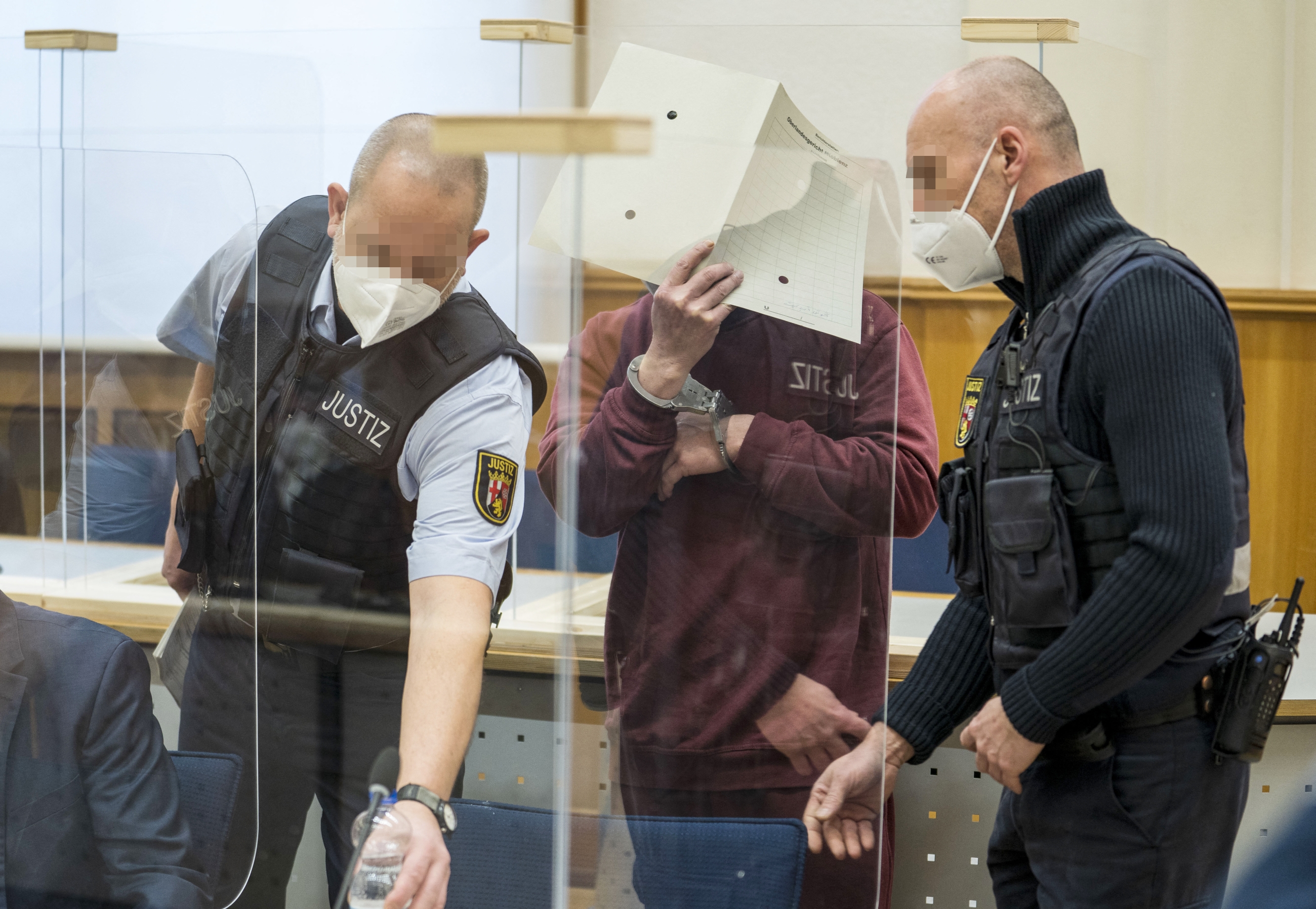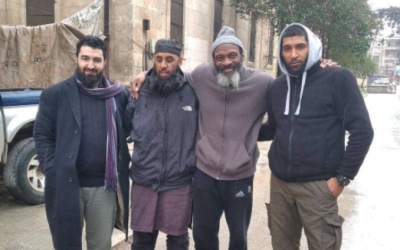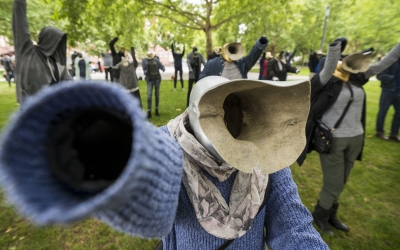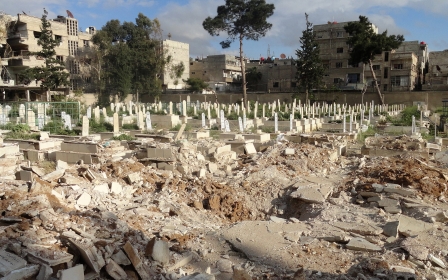Syria: Government official Eyad al-Gharib sentenced in Germany in landmark torture verdict

A court in Germany has sentenced a former Syrian government official to four and a half years in prison over complicity in crimes against humanity in his home country, in a landmark verdict.
Eyad al-Gharib was accused of involvement in the crackdown against anti-government demonstrators in 2011, rounding up protesters in the Syrian city of Douma and delivering them to a detention centre where they were subjected to torture.
"The accused is sentenced to four years and six months for aiding and abetting a crime against humanity in the form of torture and deprivation of liberty," said the judge, Anne Kerber.
'This precedent is a very important step on our long road of seeking justice'
- Mohammad al-Sheikh, campaigner
Gharib, arms folded and wearing a mask, hid his face behind a folder as the verdict was read out.
The conviction in the western German city of Koblenz marks the first time a foreign court has ruled on state-sanctioned abuses by President Bashar al-Assad's government.
New MEE newsletter: Jerusalem Dispatch
Sign up to get the latest insights and analysis on Israel-Palestine, alongside Turkey Unpacked and other MEE newsletters
Gharib, a member of Syria's intelligence service, fled Syria after the war erupted and applied for asylum in Germany, claiming to have defected from the Assad government.
In 2019, he was arrested along with another former intelligence officer, Anwar Raslan, by German authorities under the principle of universal jurisdiction and went on trial in April 2020.
Mohammad al-Sheikh, a campaigner whose father and uncle were both killed under torture in Syrian government detention, told Middle East Eye the verdict could hopefully be the first of many such convictions.
"This precedent is a very important step on our long road of seeking justice," he said.
"These kinds of trials and verdicts are necessary for the families of the victims as a kind of restitution of their rights and are also necessary as a deterrent to officials of the Syrian regime that the crimes that were committed will not pass without accountability."
Ghufran Khoulani, whose three brothers were all killed under torture in Assad's prisons, also welcomed the verdict.
“The atrocities on trial in Koblenz are still happening right now in Syria," she said in a statement through the Caesar Families Association, an organisation that campaigns for victims of state abuses in Syria.
"All detainees must be released, and justice must be achieved for the forcibly disappeared.”
Raslan is charged with crimes against humanity, rape, aggravated sexual assault and 58 murders.
As commanding officer of a prison controlled by Branch 251 intelligence unit, he allegedly oversaw the torture of at least 4,000 people between 29 April 2011 and 7 September 2012.
His trial is still ongoing and is expected to last until October.
Gharib, who was a lower-ranking official, was accused of 30 counts of assistance to torture and murder.
Both men were relatively open about their involvement in state repression when interviewed by asylum officials in Germany.
During his interview in 2018, Gharib admitted that he had helped round up protesters and people photographing protests in Damascus, who were transported to the notorious Branch 251 prison.
Ghalia Mardam Bek, executive director of the Violations Documentation Centre, a network of opposition activists that reports on human rights abuses in Syria, said the new verdict was a "ray of hope" for Assad's victims and would encourage more people to come forward with evidence.
"After several arrest warrants against high-ranking officers within the Syrian security services, and with the efforts to pursue war criminals through universal jurisdiction, finally the first verdict against one of those involved in torture crimes in Syria comes as a ray of hope for the victims," she told MEE.
"This constitutes a very important step in reaching justice, fighting immunity and holding war criminals responsible for the brutalities they committed. This also constitutes a great motivation for human rights activists to continue their work in documenting crimes."
A litany of abuses
Since the trial opened in April 2020, numerous former officials and victims have testified to abuses carried out during the early years of the Syrian uprising.
Many were heard anonymously, some with their identities concealed by wearing wigs, for fear of reprisals against relatives still in their home country.
One Syrian government employee testified anonymously in the court in 2020 about being recruited from the Damascus burial authority by security officers to work on mass graves at Najha and al-Qutayfah, near the capital.
He said bodies came from the Branch 251 prison as well as the Saydnaya military prison and the Harasta military hospital.
“A truck would arrive and the doors would be opened. Some employees would go inside and push the bodies out with their hands. Then an excavator would close up the ditch," he told the court, adding that while the number of the dead varied, one truck usually carried around 700 bodies.
He said he once almost broke down after he discovered a woman holding her child in her arms among the corpses.
“The smell was so strong that it stayed in my nose, even after we left. As soon as the doors opened, the smell spread out over a hundred metres," he said.
"There were streams of blood and maggots. The first time we went, I could not eat for days afterwards.”
The Koblenz trial also marked the first time that images from the Caesar files - 50,000 images taken by a Syrian military police defector - were presented to a court of law.
The photos, taken by the defector codenamed "Caesar", showed the corpses of 6,786 Syrians who had been starved or tortured to death inside detention centres.
Middle East Eye delivers independent and unrivalled coverage and analysis of the Middle East, North Africa and beyond. To learn more about republishing this content and the associated fees, please fill out this form. More about MEE can be found here.






